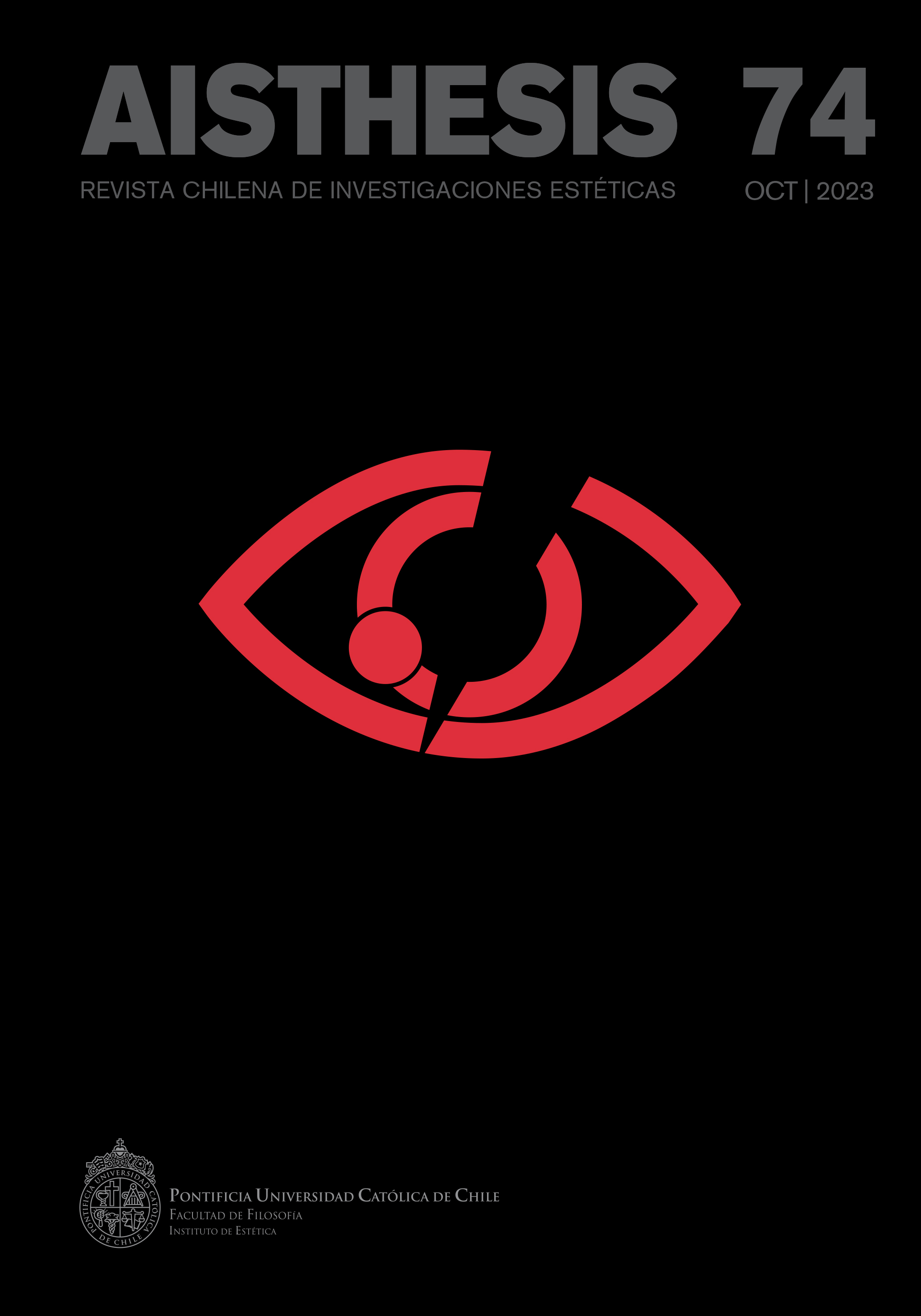Chile, Year Zero. The Image-hope in the Cinema of the Popular Unity
Main Article Content
Abstract
From a theoretical perspective close to the affective turn, these pages propose to reflect on the construction of hope in part of the Chilean Popular Unity cinema during the first months of Salvador Allende's government. We do not review in depth films about which everything has been said, but we study what can be called the image-hope. To characterize hope, a certain juxtaposition will be taken into account with what Georges Didi-Huberman called the «left image» in a recent debate with Enzo Traverso. We chose three films whose only common note is that they correspond in various ways to a kind of «zero year»: El primer año by Patricio Guzmán (1972), Voto + fusil by Helvio Soto (1971) and Palomita blanca by Raúl Ruiz, finished in 1973 before the coup d'état and released in 1992. In all three, it is possible to thematize a hope that seems to raise more questions than reassuring options even when, as Guzmán said in the filming diary of El primer año, «Chile was a party».
Downloads
Article Details

This work is licensed under a Creative Commons Attribution-NonCommercial-ShareAlike 4.0 International License.
All contents of this electronic edition are distributed under the Creative Commons license of "Attribución-shareAlike 4.0 Internacional" (CC-BY-SA). Any total or partial reproduction of the material must mention its origin.
The rights of academic works published in this publication belong to their authors., who grant to AISTHESIS: Revista Chilena de Investigaciones Estéticas the license for its use. The management of the permits and the authorization of the publication of the images (or of any material) that contains copyright and its consequent rights of reproduction in this publication is the sole responsibility of the authors of the articles
References
Referencias
AA. VV. Patricio Guzmán, cine documental y memoria. Material pedagógico. Centro Cultural La Moneda, 2018.
Agamben, Giorgio. La potencia del pensamiento. Adriana Hidalgo Editora, 2007.
Anderson, Ben. «Becoming and Being Hopeful: Towards a Theory of Affect». Environment and Planning D: Society and Space, vol. 24, 2006, pp. 733-752.
Aravena, Pablo. «La UP como utopía del pasado (a 43 años del Golpe de Estado». Un afán conservador. Intervenciones, reseñas y columnas. Inubicalistas, 2019, pp. 31-38.
Ayo Schmiedecke, Natália. «Los intelectuales y la cuestión de la cultura popular: interpretaciones e iniciativas durante la Unidad Popular». Kamchatka. Revista de Análisis Cultural, nº 17, 2021, pp. 15-41.
Benjamin, Walter. «Der Autor als Produzent». Gesammelte Schriften II, I. Suhrkamp, 1991, pp. 683-701.
––. La dialéctica en suspenso. Fragmentos sobre la historia. Trad. Pablo Oyarzún Robles. Arcis / LOM, 2002.
––. «París, Capital del siglo xix». Libro de los pasajes. Trads. Isidro Herrera, Luis Fernández Castañeda y Fernando Guerrero. Akal, 2007
Bloch, Ernst. El principio esperanza. Trad. Felipe González Vicén. Editorial Trotta, 2004.
Briceño Ramírez, Laura de la Luz. «El debate cultural en la Unidad Popular: una cuestión previa (1958-1969)». Kamchatka. Revista de Análisis Cultural, nº 17, 2021, pp. 43-67.
Cabezas, Oscar Ariel. «La Unidad Popular (1970-73) es el hecho maldito del país neoliberal». Revista Haroldo. Diálogo con el pasado y presente, 2020. https://revistaharoldo.com.ar/nota.php?id=512
––. «Salvador Allende: El ocaso de una modernidad plebeya». Res Publica. Revista de Historia de las Ideas Políticas, vol. 24, nº 2, 2021, pp. 259-274.
Cabezas, Oscar Ariel y Miguel Valderrama. Consignas. Ediciones La Cebra, 2014.
Capranzano, Vincent. «Reflections on Hope as a Category of Social and Psychological Analysis». Cultural Anthropology, vol. 18, nº 1, 2003, pp. 3-32.
Cornejo, Tomás. «Filmar a contrapelo: el cine de Helvio Soto durante la Unidad Popular». Atenea, nº 508, 2013, pp. 13-29.
Eagleton, Terry. Esperanza sin optimismo. Trad. Belén Urrutia. Taurus, 2016.
Didi-Huberman, Georges. «La imaginación, nuestra Comuna». Theory Now. Journal of Literature, Critique, and Thought, vol. 3, nº 2, 2020, pp. 5-21.
––. «19. Potencia de no. O la política del desobramiento». Desear desobedecer. Lo que nos levanta 1. Trad. Juan Calatrava y Alessandra Vignotto. Abada Editores, 2020, pp. 113-124.
––. « Qu’est-ce qu’une image de gauche ?». AOC, 18 jul. 2022. https://aoc.media/opinion/2022/07/17/quest-ce-quune-image-de-gauche/
García Espinosa, Julio. «Por un cine imperfecto». Hojas de cine. Testimonios y documentos del Nuevo Cine Latinoamericano, vol. III. SEP / UAM / Fundación Mexicana de Cineastas, 1988, pp. 63-77.
Guzmán, Patricio. «Chile era una fiesta. Notas del diario de filmación de El primer año». Cinémas d’Amérique Latine, nº 21, 2013, pp. 25-29.
––. «1970-1973. El cine chileno durante Salvador Allende». Kamchatka. Revista de Análisis Cultural, nº 17, 2021, pp. 207-216.
Macón, Cecilia. «Esperanza contra natura o de los pasados queer como desafío en el presente». El Banquete de los Dioses. Revista de Filosofía y Teoría Política contemporáneas, vol. 5, nº 7, 2017, pp. 130-146.
Miyazaki, Hirokazu. The Method of Hope. Anthropology, Philosophy, and Fijian Knowledge. Stanford University Press, 2004.
Muñoz, José Esteban. Cruising Utopia. The Then and There of Queer Futurity. New York University Press, 2009.
Primer Plano. «Entrevista a Helvio Soto - Para ser un cineasta revolucionario primero hay que ser un buen cineasta». Primer plano 1, 1972, 4-26.
––. «El primer año». Primer plano 4, 1972.
Rojas, Sergio. ¿Qué hacer con la memoria de «octubre»? Inubicalistas, 2023.
Sanz, Álvaro. «Nostalgia de la Unidad Popular. Evolución de la forma cinematográfica en la obra de Patricio Guzmán». Revista de Análisis Cultural, nº 17, 2021, pp. 271-297.
Serra, Francisco. «La actualidad de Ernst Bloch». El principio esperanza. Trotta, 2004.
Sorensen, Diana. A Turbulent Decade Remembered. Scenes from the Latin American Sixties. Stanford University Press, 2007.
Thayer, Willy. Imagen exote. Palinodia, 2019.
Traverso, Enzo. Rivoluzione. 1789-1989: un’altra storia. Feltrinelli, 2021.
––. Revolución. Una historia intelectual. Fondo de Cultura Económica, 2022.
––. «Soulèvements / Égarements». AOC, 4 jul. 2022. https://aoc.media/opinion/2022/07/03/soulevements-egarements/
Villalobos-Ruminott, Sergio. «El cine impolítico de Raúl Ruiz». Soberanías en suspenso. Imaginación y violencia en América Latina. Ediciones La Cebra, 2013, pp. 251-270.
––. «Raúl Ruiz: la impolítica del cine». Efectos de imagen. ¿Qué fue y qué es el cine militante? Eds. Elixabete Ansa Goicoechea y Oscar Ariel Cabezas. LOM, 2014, pp. 291-317.
